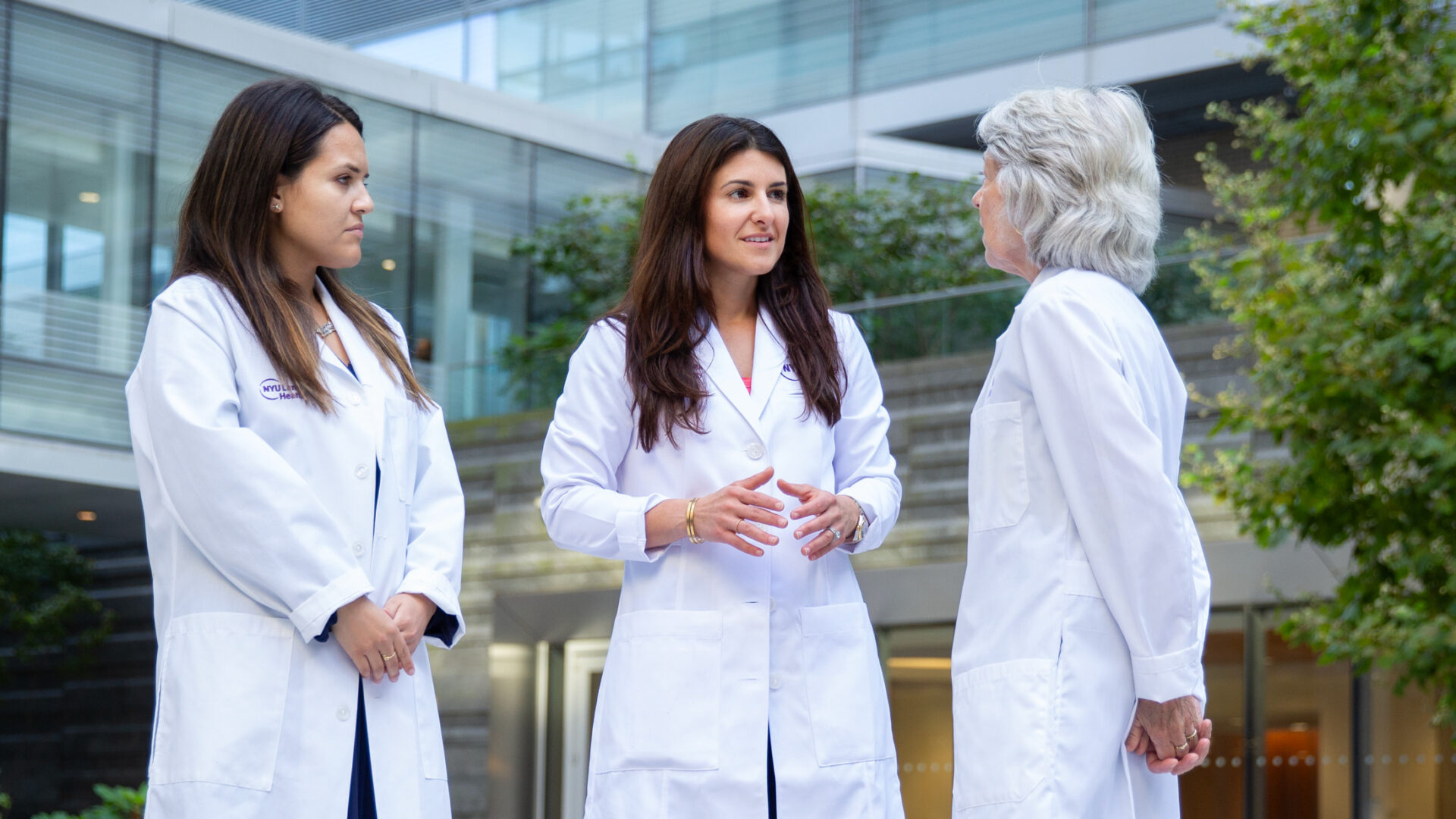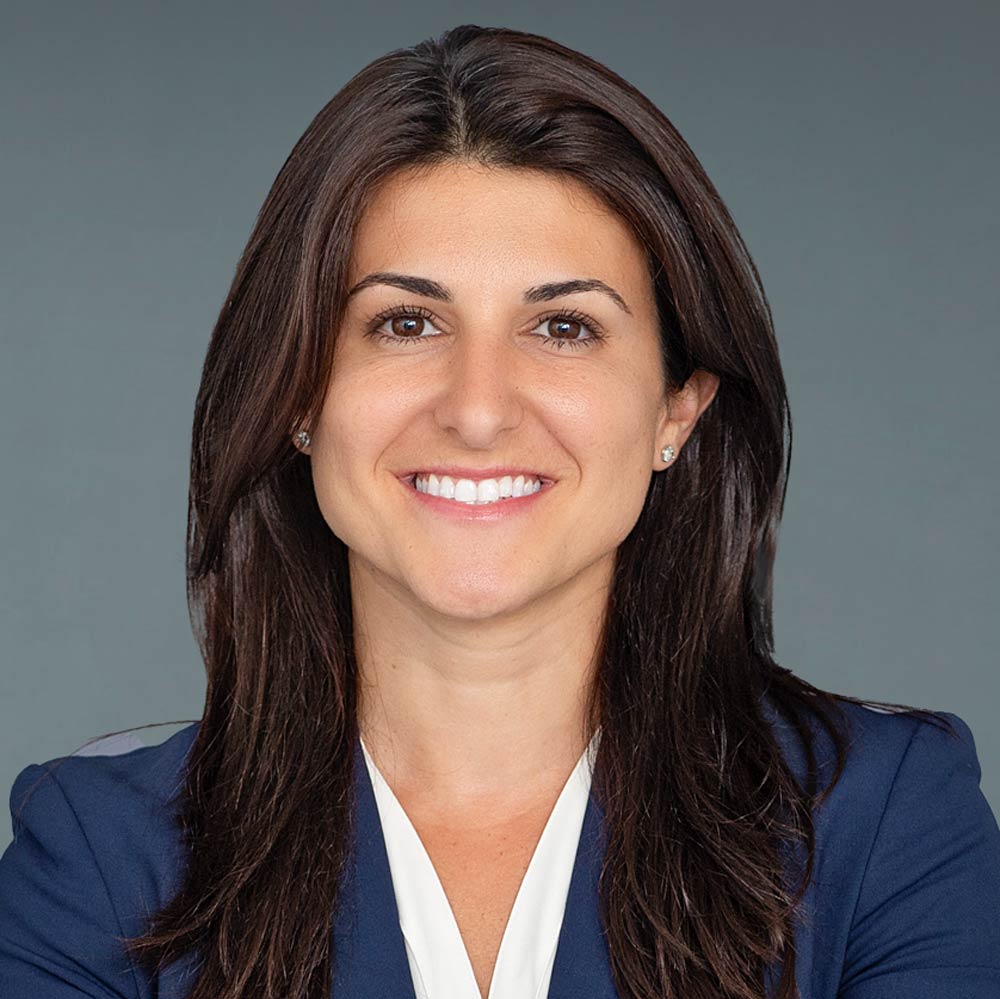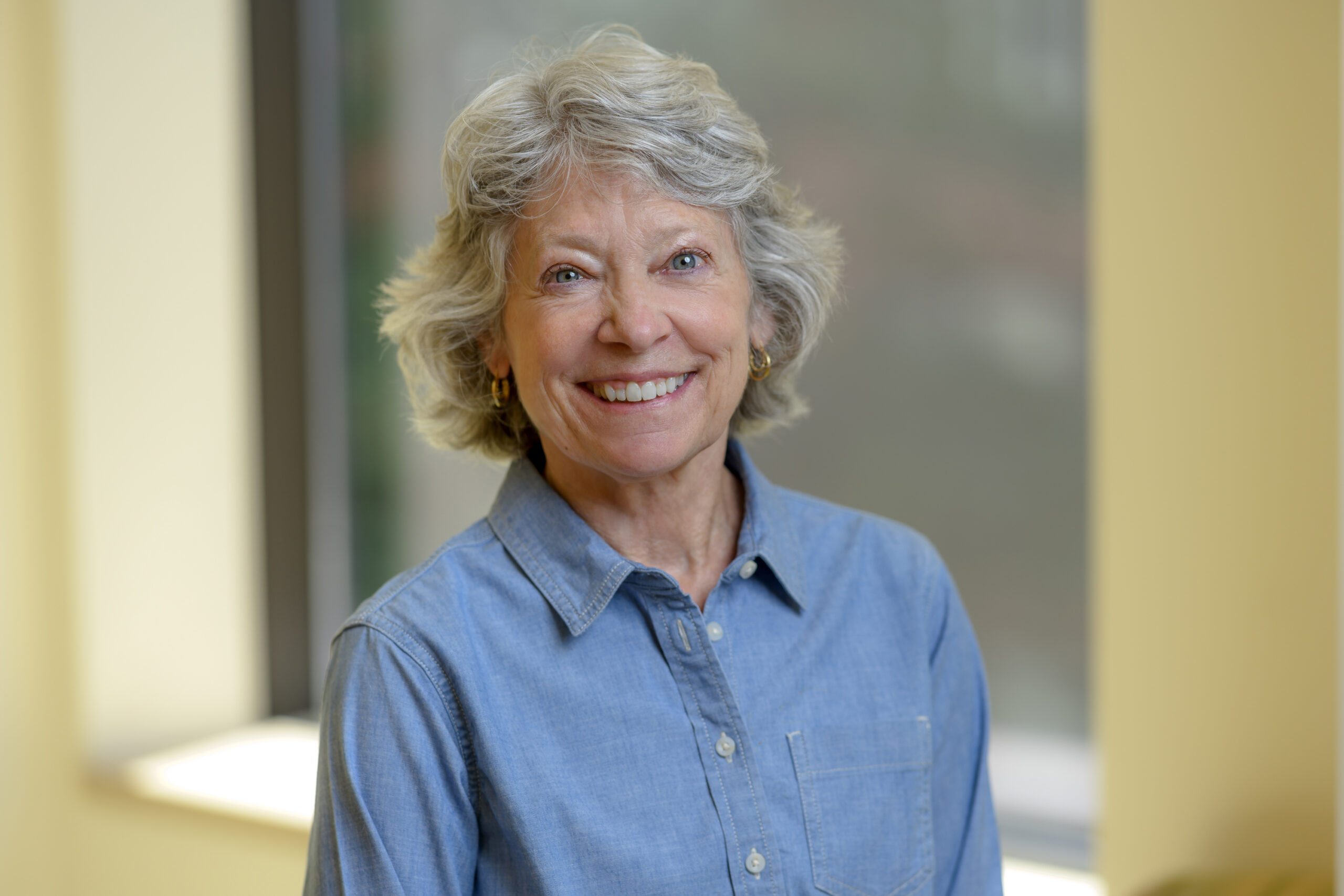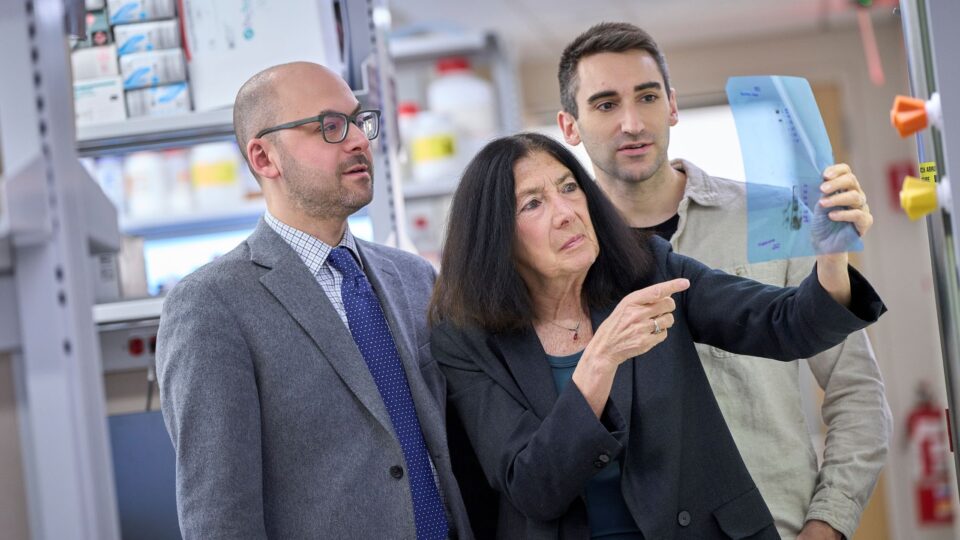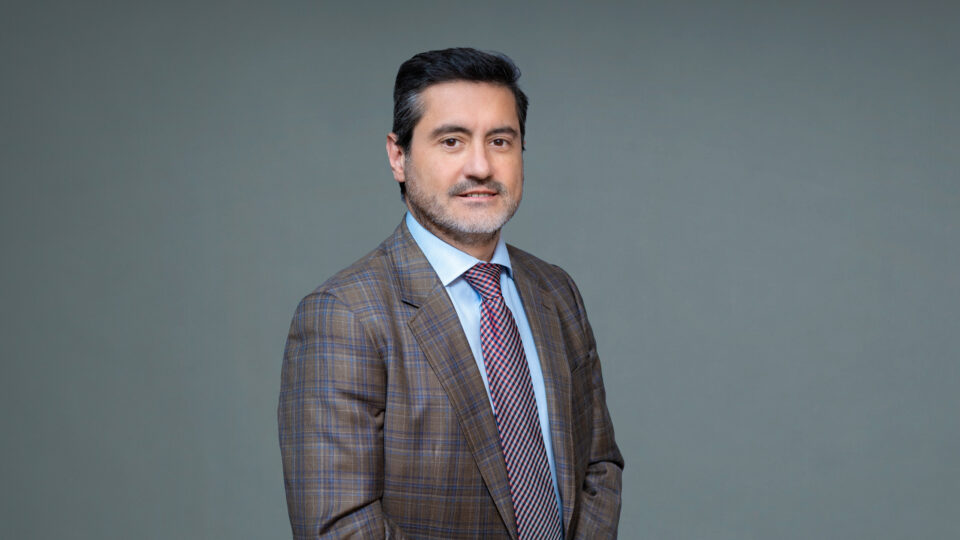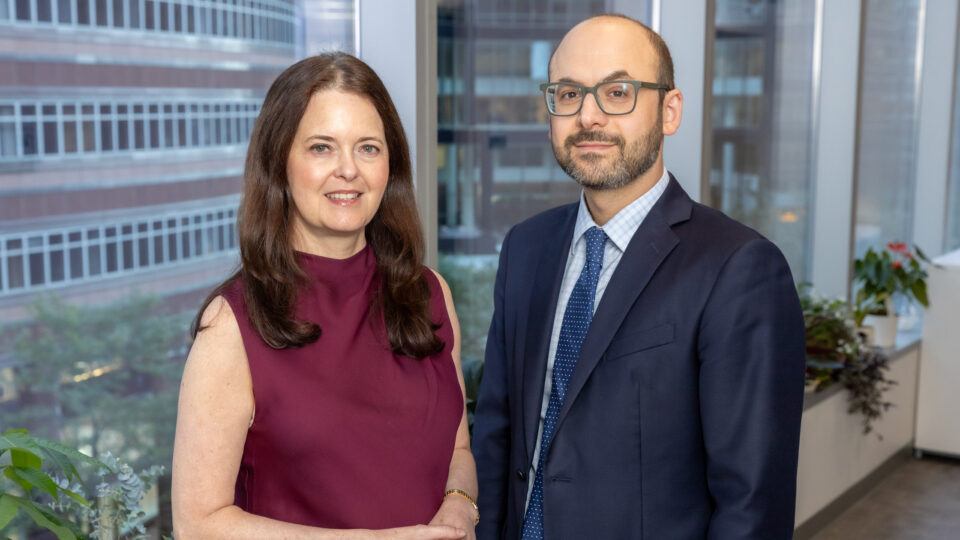Referral Notes:
- The NYU Langone Oncofertility Program offers standard and novel treatments and prioritizes easy access to care.
- Under new protocols, oncofertility services are available to every patient with cancer, and any provider in the NYU Langone system—including nurses and physician assistants—can refer patients to a team of dedicated fertility nurse navigators.
- The program has performed the system’s first uterine transposition surgery and the first ovarian tissue cryopreservation.
Although infertility is a common effect of many cancer therapies, only a small minority of patients take advantage of technologies available to preserve fertility before or during treatment. Studies point to numerous barriers preventing patients from seeking such care, including lack of awareness, the high cost of many fertility-preservation procedures, insufficient time to act due to an urgent diagnosis, and patients’ or providers’ discomfort with discussing reproductive issues.
NYU Langone Health is addressing these obstacles with a new program that prioritizes easy access to care. Launched in February 2024, the Oncofertility Program at Perlmutter Cancer Center offers a comprehensive range of fertility counseling, education, and treatment options—including novel techniques such as uterine transposition and ovarian tissue cryopreservation.
In addition to its clinical robustness, what sets the program apart is its proactive approach: Under a groundbreaking protocol, every patient treated for cancer at NYU Langone is given the opportunity to receive oncofertility services through a team of dedicated nurse navigators. And any provider who interacts with the patient can set the process in motion.
“We want to optimize patients’ ability to live normal lives in the years that follow their cancer treatment.”
Emeline M. Aviki, MD, MBA
“We want to optimize patients’ ability to live normal lives in the years that follow their cancer treatment, including having children if they wish to do so,” says gynecologic oncologist Emeline M. Aviki, MD, MBA, the program’s physician sponsor. “Our goal is to ensure that every patient with cancer who is treated at NYU Langone has seamless access to both standard of care and the most cutting-edge methods for fertility preservation.”
Casting a Broad Net
Dr. Aviki joined NYU Langone in 2023 from Memorial Sloan Kettering Cancer Center (MSKCC), where she had participated in a similar program. Although the NYU Langone Fertility Center has long offered egg freezing under the direction of reproductive endocrinologist and infertility specialists Elizabeth Fino, MD, in Manhattan, and Linda Sung, MD, in Long Island, Dr. Aviki set out to increase access and participation while expanding specialized services to patients across the health system.
She recruited Rosemary Semler, RN, a veteran oncology nurse who had led MSKCC’s program, to direct the initiative. Oncologist Abraham Chachoua, MD, played a key role in championing the program and securing philanthropic support from NYU Langone’s Lung Cancer Center, where he is director.
Based at NYU Langone Hospital—Long Island, the team’s vision emphasizes making the program accessible at all NYU Langone locations. Physicians, nurses, and other providers are offered a new protocol: all patients diagnosed with cancer or a high-risk genetic mutation, or who express the desire to discuss family-building options posttreatment, should be asked if they would like to receive fertility-preservation counseling. If so, they can be referred to one of the program’s two nurse navigators—Semler and Vanguie Armijo Mora, RN—through an Epic order set.
“Anyone can put in the referral,” says Semler. For example, chemotherapy nurses are encouraged to ask if fertility has been discussed before administering medication for the first time. “Sometimes, patients will decline fertility counseling, only to have their spouse express interest at the time treatment starts. You can just imagine the long-term impact on their relationship if they hadn’t been given the opportunity to discuss their wishes around this issue.”
“Sometimes, patients will decline fertility counseling, only to have their spouse express interest at the time treatment starts. You can just imagine the long-term impact on their relationship.”
Rosemary Semler, RN
A consult can be arranged within 24 hours—or more quickly, if necessary. “We have arrangements with sperm banks where patients can collect right away so there is no significant delay in the administration of chemotherapy,” Semler adds.
Offering Expert Advice and Cutting-Edge Care
During a counseling session, navigators discuss the fertility-specific effects of prescribed cancer treatment and a patient’s options for fertility preservation. They can then provide referrals to the appropriate services at NYU Langone. These include not only established approaches such as sperm banking and egg retrieval, but also cutting-edge techniques that are available at few other medical centers worldwide.
Recently, for example, Dr. Aviki and her colleague, Leslie R. Boyd, MD, performed a pioneering uterine transposition surgery—a procedure that had previously been completed fewer than a dozen times in the United States, she says. This surgery, which involves temporarily relocating the uterus to the upper abdominal wall to avoid damage during pelvic radiation, can preserve both fertility and hormonal function.
Similarly, ovarian tissue cryopreservation—in which tissue that holds the eggs is surgically removed and frozen before cancer treatment, and then reimplanted—enables restoration of premenopausal status as well as fertility in women who have undergone high-dose chemotherapy.
“This patient population includes girls in early adolescence,” says Dr. Aviki. “It’s a terrible thing when a young girl needs to start chemotherapy so urgently that there isn’t enough time to undergo egg retrieval. In those cases this novel procedure is her only option to preserve fertility, and we are proud to offer it.”
“When patients send a picture of their baby and tell me, ‘You made a difference,’ it’s incredibly rewarding.”
Rosemary Semler, RN
The Oncofertility Program provides coordination across the cancer care team for patients seeking fertility preservation. It also orchestrates logistically challenging procedures such as inpatient sperm banking and facilitates communication between patients and caregivers.
“Teenage boys may find it difficult to talk about ejaculation with a parent or physician,” Semler notes. “It’s often less stressful for them to talk over the phone with a nurse navigator who can explain the risk that treatment poses to their fertility and how to preserve sperm.”
Helping Patients Afford Treatment
Another key function of the program is to provide resources for patients facing the financial challenges posed by fertility-preservation procedures, which are rarely covered by insurance. In selecting partners to provide services such as egg freezing, the program sought out centers that would offer discounted rates. The program also partners with philanthropic organizations that offer help with costs, as well as arranging financial aid from NYU Langone for patients in need.
“This work is a hopeful part of oncology practice,” Semler says. “When patients send a picture of their baby and tell me, ‘You made a difference,’ it’s incredibly rewarding. To help them have the life they always dreamed of is an amazing thing.”


